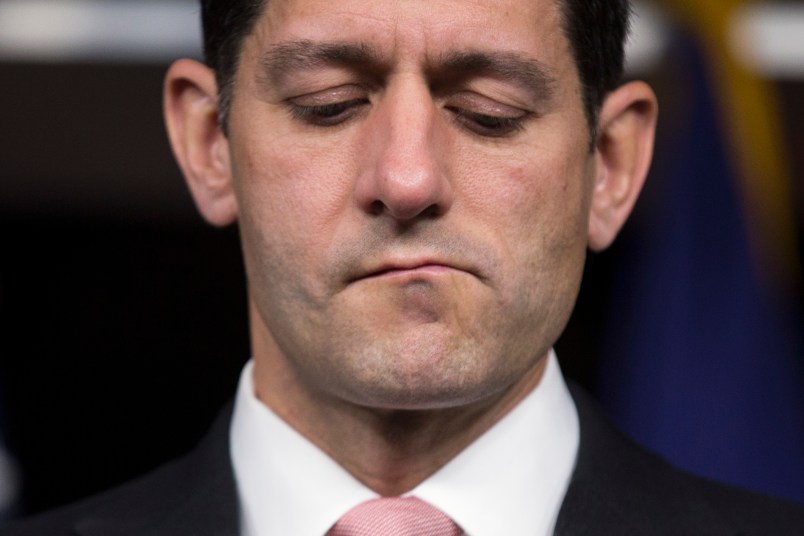The Congressional Budget Office laid out some important ground rules in a blog post Tuesday for how it will judge whatever Obamacare replacement plans lawmakers eventually offer if they repeal the Affordable Care Act next year. The CBO said it would not be giving any proposals credit for covering consumers unless the plans that consumers would be receiving met certain broad standards for coverage.
The post comes as GOP lawmakers are readying their push to repeal Obamacare early next year, but with a two- to four-year delay that they say would give them enough time to settle on a replacement. Over the six-plus years since the ACA was passed, Republicans have struggled to develop consensus around an alternative, in part because of deep disagreements within the party over the government’s role in the health care industry and whether universal coverage should be a goal.
The CBO blog post adds a new wrinkle to the debate, by making clear that lawmakers won’t be able to claim that they will protect the millions of people that stand to lose insurance with an Obamacare repeal if the coverage that comes with their ACA replacement is significantly less generous or wide-ranging.
“Two key questions for policymakers in developing such proposals are what type of insurance products would qualify for tax credits and what role states would have in making that determination,” the CBO said.
The blog post went on to explain the regulations imposed by ACA that determine which plans are eligible for the law’s subsidies and how they compared to the standards the CBO used before the Affordable Care Act to determine whether a plan offered enough for its recipient to be considered covered. It noted that many proposals that have been floated to replace Obamacare offer tax credits for plans, but significantly loosen or eliminate the regulations surrounding insurers.
“If there were no clear definition of what type of insurance product people could use their tax credit to purchase, some of those insurance products would probably not provide enough financial protection against high medical costs to meet the broad definition of coverage that CBO and [Joint Committee on Taxation] have typically used in the past—that is, a comprehensive major medical policy that, at a minimum, covers high-cost medical events and various services, including those provided by physicians and hospitals,” the CBO said. The agency went out to lay out the challenges in estimating, under such proposals, how many people would be covered using its previous standards for insurance plans.
“What CBO is saying is that they’ll count people buying these skimpy insurance policies with refundable tax credits as being uninsured,” Larry Levitt, vice president at the Kaiser Family Foundation, told TPM over an email. “This will make it harder for Republicans to say that their proposals are not increasing the number of people uninsured. CBO is making clear that what matters is not only how many people are buying an insurance policy, but also what those insurance policies cover.”







Are we still giving the GOP the benefit of the doubt that they actually do plan to replace Obamacare? Oh please. They have no intention of providing anyone with health insurance (other than themselves, of course). The tax breaks for the 1%ers have to come from somewhere - might as well be at the expense of people who don’t matter…you and me.
Expect a bill to defund the CBO in 3…2…1…
The solution for the Republican Congress is simple…ignore the CBO. They essentially ignored it the last eight years, so why would they give it credence now? With a Trump presidency, facts and budget scoring aren’t going to be the driving forces. You aren’t going to “shame” them simply because the CBO disagrees. They will instead rely on their gut feeling and the feeling of their supporters.
The GOP underestimates the backlash with Obamacare, Medicare, and SS. Even the average moronic Trump voter will know people screwed if the GOP messes with their lives.
CBO, SchmeeBO. This is why Trump privatizes his advisers. They will give him the truth he already knows.